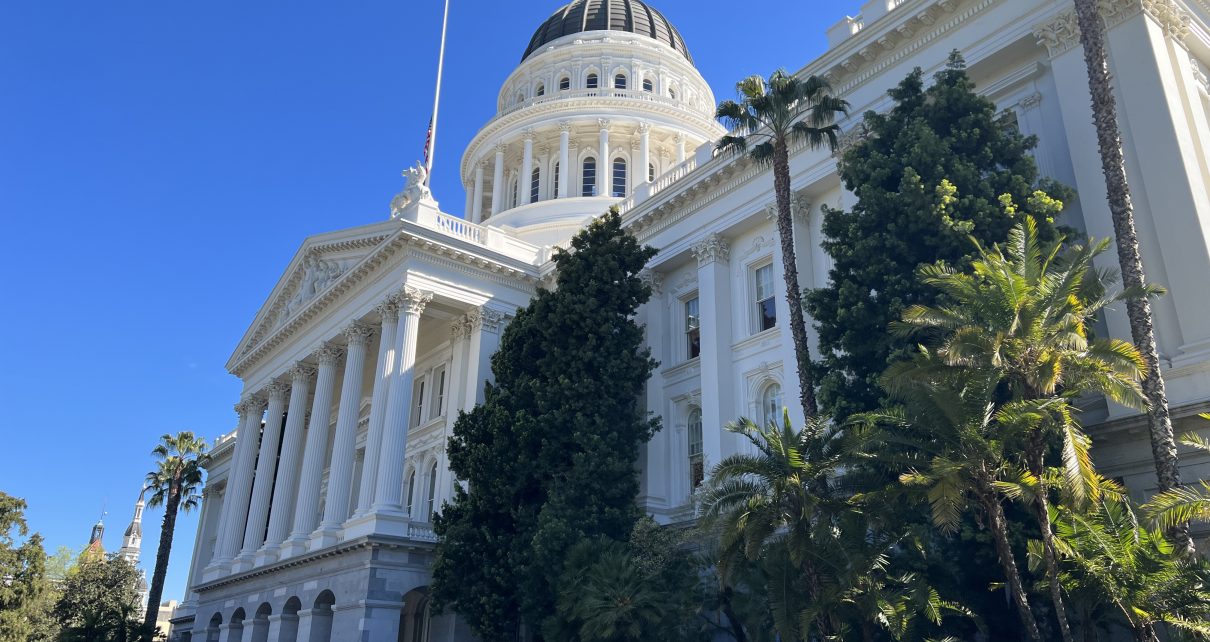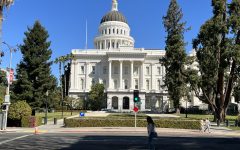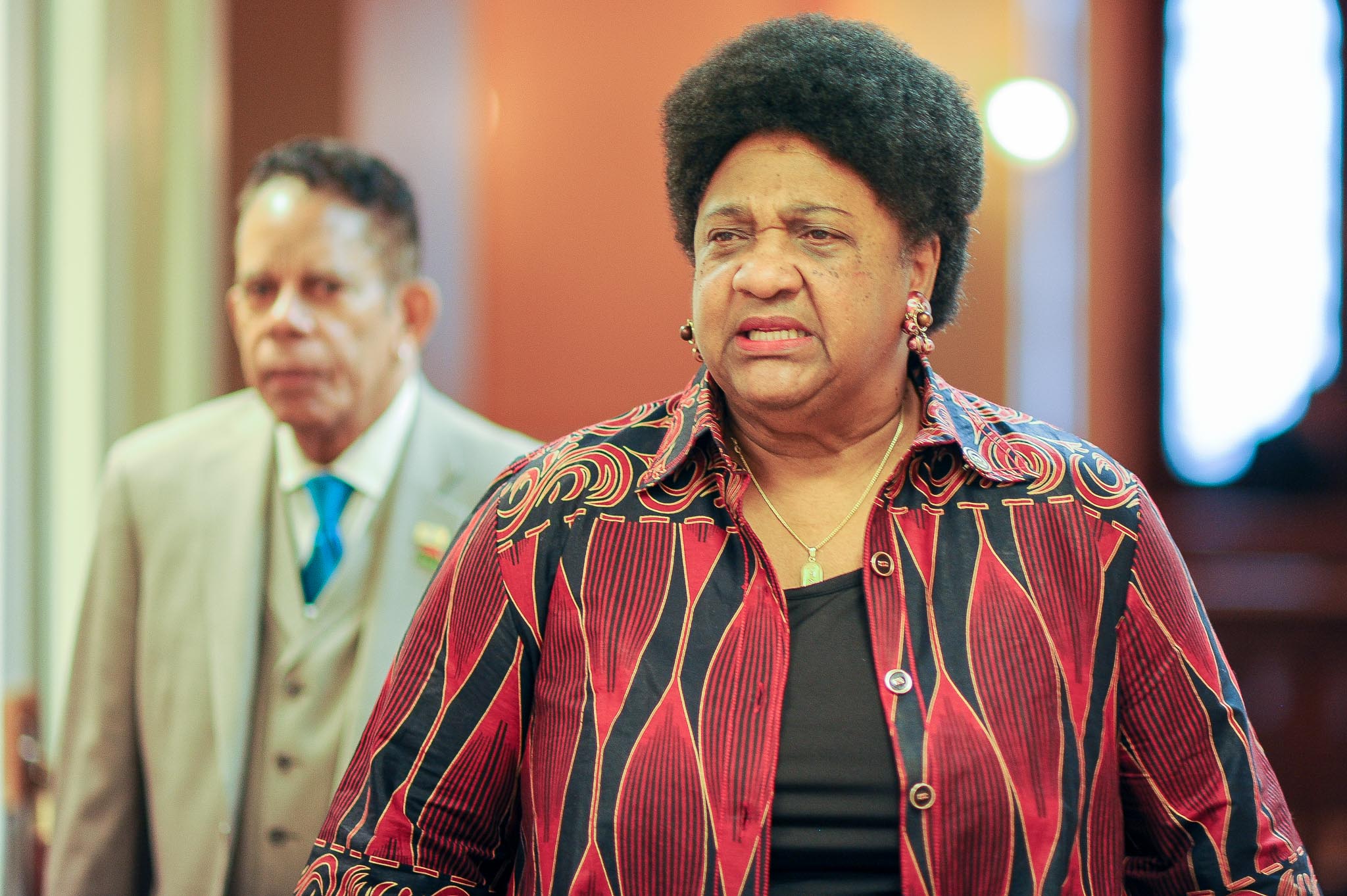
California State Capitol (Photo: Kevin Sanders for California Globe).
Reparations Bills Have A Mixed Reception From Lawmakers As Many Are Held Back Over Cost
Two high cost reparations bills killed in the Senate Appropriations Committee
By Evan Symon, May 17, 2024 1:12 pm
Multiple reparations bills based on the California Reparations Task Force’s final report were held back in the Senate and Assembly on Thursday over concerns of cost amidst California’s $73 billion budget deficit.
For several years, one of the major issues concerning proposed reparations and reparation bills in the state has been over what the cost will be. The Task Force’s first report in June 2022 gave recommendation for reparations, in the form of home buying assistance, free college tuition, and business grants. However, one of the many criticisms against the report recommendations was that no estimated monetary figure was attached. In early December, an estimate of $569 billion was provided by the state, leading to disbelief and the threat of lawsuits if the number holds. Later that month, compensation compensation and eligibility requirements were discussed.
In early 2023, with the state facing a major budget deficit, a new compensation plan totaling $800 billion was released. However, that plan received stark opposition, with so many opposing the $800 billion compensation plan approved by the Task Force in May that Task Force members came out and said to “stop focusing on the monetary part of the plan.” Another figure of $1.2 million given to each black resident was also scrutinized. It grew so bad that even Governor Gavin Newsom came out in opposition toward cash payments because of how much it would cost the state. Some on the Task Force even had to begin looking into backdoors ways for reparations policies.
When the Task Force released their list of recommendations in June of 2023, it was once again criticized for the number of costly proposed measured. With the vast majority of Californians opposing any cash payments, and many lawmakers warning that they wouldn’t support any bills with a high monetary cost because of the worsening deficit, the Legislative Black Caucus aimed to go for low or zero cost bills. In February, they released their list of 14 proposed bills for this year, with the majority of them being zero or low cost.
Some of the bills quickly moved up. This included AB 1986, a zero cost bill that would eliminate the CDCR practice of banning books without oversight and review, and AB 1815, a zero-cost bill that would prohibit discrimination based on natural and protective hairstyles in all competitive sports. Both bills passed the Assembly in recent weeks and are now headed to Senate committees. The same went for AB 3089, a bill that would have the state issue a formal apology for slavery. The bill passed the Assembly Thursday, with the cost of the bill likely to come down to how much creating a plaque for the Capitol Building is.
On these bills, only GOP Assemblymembers, as well as the odd Democrat, offered opposition in the way of vote abstentions. They disagreed with the language of the bills, particularly when the bills said that police shootings were “state-sanctioned violence” or when they tried to say that California was still denying some rights. Others opposed them on the grounds that California was never a slave state, joining the union in 1850.
“We have made tremendous progress toward a more equal society,” said Assemblyman James Gallagher (R-Yuba City) on Thursday.
Several reparations bills killed in the Senate Appropriations Committee
However, not all reparations bills made it past suspense day on Thursday either. Two bills authored by Senator Steven Bradford (D-Gardena) were held back in the Senate on Thursday due to their costly nature. One, SB 1013, would give major financial property tax assistance solely for black descendants of slaves. The other, SB 1007, would give housing grants for the same group in formerly redlined areas.
Bradford noted on Thursday before the votes that “We know we build generational wealth through home ownership, and African Americans have been denied home ownership since the Emancipation Proclamation. Their freedom, it was about land.”
Both of the bills were subsequently killed by the Senate Appropriations Committee. While some members said that it was unfair to give funds to only a small group of people at a time when most Californians were hurting or couldn’t afford homes, the main reason proved to be the high cost of the bills, leaving even many liberal Democrats balking.
“The next couple of years will be difficult for the legislative and budget processes,” said Senator Anna Caballero (D-Merced) of the bills being held in committee. “Finding balance will be critical to ensure that we can continue to make our government work efficiently and prudently.”
While some lawmakers praised the fact that many reparations bills moved on past their first house this week, many budget analysts countered that this doesn’t bode well for reparations bills in the long run as there is now a history of lawmakers turning down costly bills. Others said that the bills are a show for campaign purposes, as many can say that they helped pass reparations bills but not mention the fact that they would not offer any kind of monetary support.
“Task Force members in California have said over and over again that the first 14 bills would be stepping stones towards larger bills,” Katherine Douglas, a Washington-based analyst who focuses on state reparation efforts, told the Globe. “And those next stones are likely to have money tied to them. Not direct cash payments, but more like things like grants or subsidies. Well, look at the pattern. California’s deficit and general opposition to reparations policies has it’s toll. They got some token policies passed in either the Assembly or Senate in April and May, but all of those are simply that. Policies. Taxpayers aren’t on the hook for anything.”
“But when bills that are tied to the state paying something out? They’re quashed. We saw it yesterday. So when they try for more bills like those next year, hoping to stay on the stepping stone approach, we’re likely going to see Senators and Assemblymembers remain skittish or outright opposed to passing them. No money there. Nothing. If these came up right after the George Floyd movement in 2020 and 2021, then maybe they would of. But the public has really mellowed on these since. Not to mention, again, the money thing. They need to find more things of no cost to the taxpayers if they want to keep their approach going.”
As of Friday, several reparations bills remain alive in the Senate and Assembly.
- Bill to Require Law Enforcement Disclosure if AI Was Used To Help Write Reports - August 7, 2025
- Gov. Newsom Files FOIA Request To ‘Expose True Cost’ Of L.A. Federal Troop Deployment for Anti-ICE Riots - August 6, 2025
- California Redistricting: How Newsom’s Plan Will Demolish Hard Fought GOP Gains - August 6, 2025





This whole apology thing by Democrat is ridiculous pandering when California was never a slave state and it was Democrats who instituted slavery, segregation, Jim Crow laws and the KKK?? Democrat Assemblyman Reggie Jones-Sawyer along with other legislative Democrats are the ones who should apologize and pay for the sins of their Democrat predecessors?
It’s also curious as to how Democrat Assemblyman Reggie Jones-Sawyer, who is African-American, got elected in the 57th State Assembly district when it is overwhelming Latino/Hispanic at almost 70%? Was he installed with Democrat voter fraud and rigged voting machines?
(https://en.wikipedia.org/wiki/California%27s_57th_State_Assembly_district)